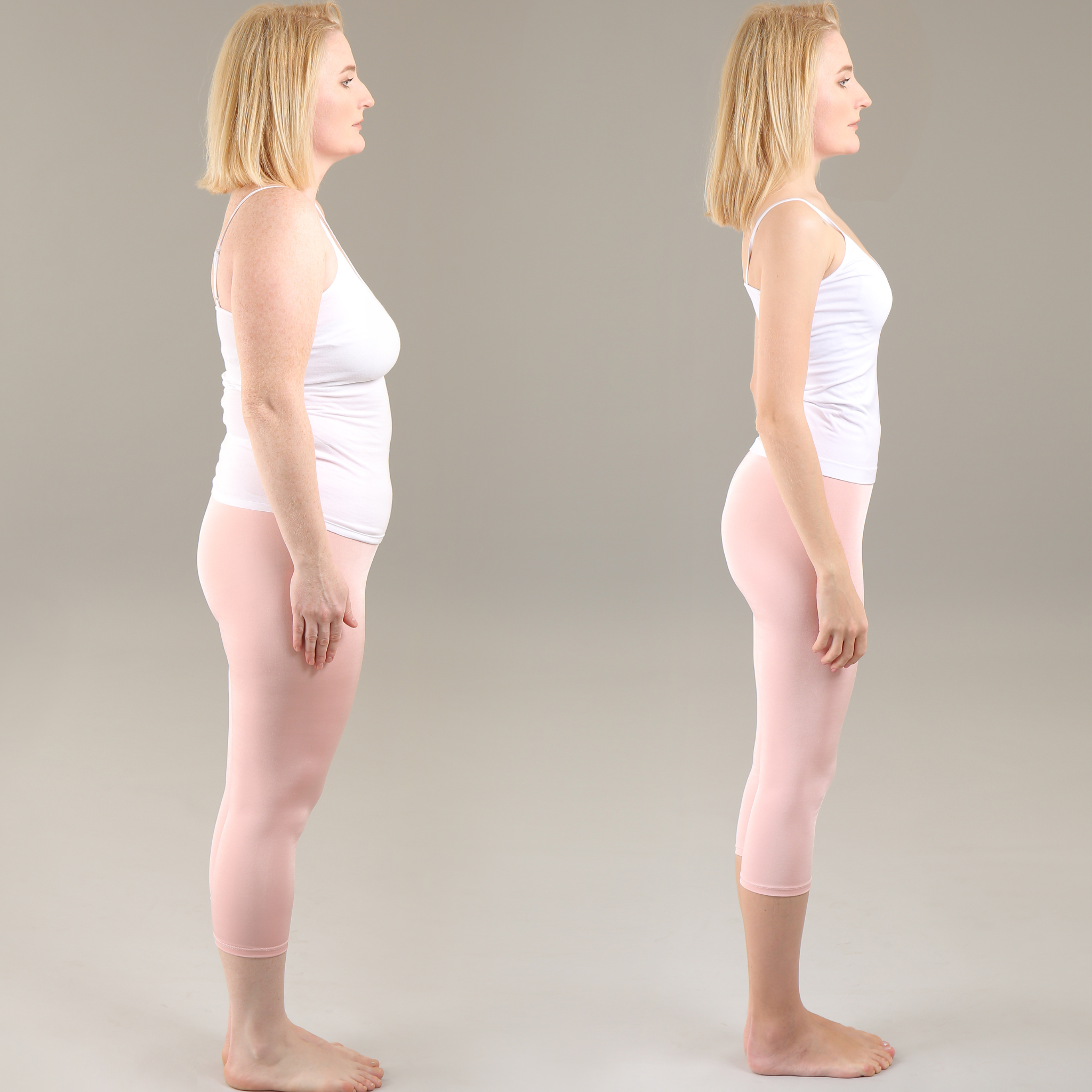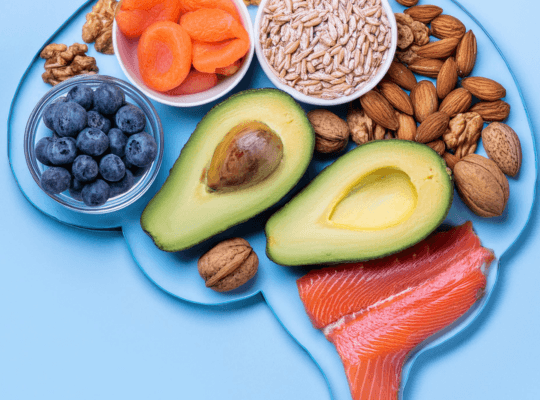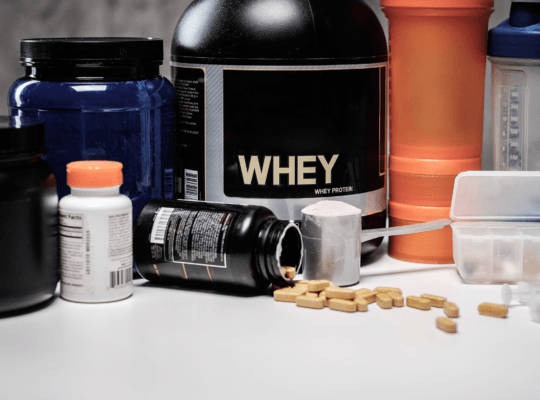Introduction
Achieving a flat belly can be particularly challenging for women with IBS who are post-menopausal. Hormonal shifts, changes in metabolism, and digestive sensitivities can make traditional approaches like calorie restriction or high-intensity exercise difficult and even counterproductive. However, there are strategies tailored to managing both IBS and post-menopausal symptoms that can help you work toward a flatter, more comfortable belly. This guide explores evidence-based techniques that address bloating, gut health, and hormonal balance to help you feel your best.
1. Focus on a Low-FODMAP Diet to Reduce Bloating
For women with IBS, following a low-FODMAP diet is one of the most effective ways to reduce bloating and discomfort. The low-FODMAP diet, developed by Monash University researchers, involves avoiding certain fermentable carbohydrates that are difficult to digest and can cause gas, bloating, and discomfort in people with IBS.
Scientific Support:
Studies show that a low-FODMAP diet reduces IBS symptoms in up to 75% of people with the condition (Staudacher et al., 2011). By following this diet, you can minimize bloating and make progress toward a flatter belly.
Low-FODMAP Foods to Include:
- Proteins like chicken, fish, and eggs
- Vegetables like carrots, zucchini, and spinach
- Fruits like strawberries and oranges in moderation
- Low-FODMAP grains such as rice, oats, and quinoa
While it may seem restrictive, working with a dietitian who specializes in IBS can make the low-FODMAP diet easier and more sustainable.
2. Balance Fiber Intake for Digestive Health
Fiber plays a crucial role in digestive health, but not all fiber is created equal, especially for those with IBS. During menopause, decreased estrogen levels can slow down digestion and worsen constipation, a common complaint among post-menopausal women with IBS.
Tips for IBS-Friendly Fiber:
- Choose Soluble Fiber: Soluble fiber, found in oats, chia seeds, and apples, is easier on the digestive system than insoluble fiber. Studies show that soluble fiber can help relieve constipation and reduce bloating in people with IBS (Bijkerk et al., 2009).
- Introduce Fiber Gradually: Rapidly increasing fiber intake can cause bloating, so start slowly and monitor how your body responds.
- Avoid High-Fiber Trigger Foods: Foods like beans, lentils, and some high-FODMAP vegetables can worsen IBS symptoms. Stick to low-FODMAP, high-soluble fiber foods instead.
Scientific Support:
A 2009 study in the American Journal of Gastroenterology found that soluble fiber improves IBS symptoms without causing the gas and bloating that insoluble fiber can provoke (Bijkerk et al., 2009). By focusing on IBS-friendly fiber sources, you can promote regularity without triggering bloating.
3. Incorporate Probiotics to Improve Gut Health
Probiotics are beneficial bacteria that can help balance the gut microbiome, which is particularly important for women with IBS. As menopause can disrupt the microbiome due to changes in hormone levels, adding probiotics can help maintain digestive health and reduce bloating.
Choosing the Right Probiotics:
- Lactobacillus and Bifidobacterium Strains: These strains have been shown to reduce bloating, abdominal pain, and irregularity in IBS patients (Sisson et al., 2014).
- Quality Matters: Choose a high-quality, clinically tested probiotic. Some brands specify which strains are beneficial for IBS and gut health.
Scientific Support:
A study published in Gastroenterology Research and Practice found that probiotics are beneficial for managing bloating and discomfort in IBS patients (Ford et al., 2014). Adding probiotics to your routine can improve your gut health and potentially reduce bloating.
4. Embrace Mindful Eating to Prevent Overeating and Bloating
Mindful eating involves paying attention to your body’s hunger and fullness cues, eating slowly, and savoring each bite. Eating too quickly can lead to swallowing air, which contributes to bloating—something IBS sufferers are already sensitive to.
Tips for Mindful Eating:
- Chew Your Food Thoroughly: Breaking down food in the mouth aids digestion and minimizes gas production in the stomach.
- Avoid Overeating: Large meals can overwhelm the digestive system, causing bloating and discomfort. Try smaller, more frequent meals instead.
- Limit Air-Swallowing Habits: Avoid using straws, chewing gum, or talking while eating, as these habits can increase air intake and contribute to bloating.
Scientific Support:
A study published in the Journal of the Academy of Nutrition and Dietetics found that mindful eating helps improve gastrointestinal symptoms in people with IBS (Hong et al., 2016). By practicing mindful eating, you can reduce bloating and enjoy meals without aggravating IBS symptoms.
5. Prioritize Stress Management to Minimize IBS Flares
Stress is a significant trigger for IBS symptoms, and chronic stress can lead to increased cortisol levels, which may contribute to weight gain, particularly around the abdomen. High cortisol can also disrupt hormonal balance, worsening menopause symptoms.
Effective Stress Management Techniques:
- Meditation and Deep Breathing: Practicing daily meditation or deep breathing exercises can help reduce cortisol levels.
- Gentle Physical Activity: Activities like yoga and walking improve mood and digestion without the high-impact strain that can worsen IBS.
- Journaling or Talking to a Friend: Emotional release can alleviate stress and, in turn, reduce IBS symptoms.
Scientific Support:
Research published in Digestive Diseases and Sciences indicates that stress management techniques, such as mindfulness meditation, can significantly reduce IBS symptoms and improve quality of life (Zernicke et al., 2013). By addressing stress, you can manage both IBS symptoms and post-menopausal weight gain more effectively.
6. Engage in Gentle Exercise to Support Digestion and Hormonal Balance
High-intensity workouts can be too taxing for women with IBS and may exacerbate bloating. Instead, choose exercises that promote digestive health and improve circulation without causing stress to the gut.
IBS-Friendly Exercises:
- Walking: Gentle walking after meals aids digestion and prevents bloating.
- Yoga: Certain yoga poses, like twists and gentle inversions, can relieve gas and aid bowel movements. A study in Complementary Therapies in Medicine found that yoga significantly improves symptoms of IBS (Kuttner et al., 2006).
- Pilates: Core-strengthening movements in Pilates can improve posture and reduce abdominal pressure, promoting a flatter belly.
Scientific Support:
Studies, including one published in Complementary Therapies in Medicine, suggest that yoga reduces IBS symptoms, likely due to its focus on breath work, relaxation, and gentle movement (Kuttner et al., 2006). Engaging in regular, low-impact exercises can support both digestive health and hormonal balance, helping you work toward a flatter stomach.
7. Optimize Sleep for Hormonal and Metabolic Health
Poor sleep can lead to weight gain, increased stress, and worsened IBS symptoms. Sleep is essential for hormone regulation, particularly during menopause, and supports metabolic health, which can affect abdominal fat storage.
Tips for Better Sleep:
- Establish a Routine: Go to bed and wake up at the same time each day.
- Limit Blue Light Exposure: Avoid screens an hour before bed to help promote melatonin production.
- Consider Relaxation Techniques: Meditation or light stretching before bed can help relax the mind and prepare your body for sleep.
Scientific Support:
Research in the journal Menopause shows that poor sleep quality is associated with weight gain and hormonal imbalances in post-menopausal women (Moore et al., 2014). Prioritizing quality sleep can help balance your hormones, reduce stress, and manage IBS symptoms effectively.
Conclusion
Achieving a flat belly while managing IBS and navigating menopause may seem challenging, but it’s possible with the right approach. By focusing on a low-FODMAP diet, balancing fiber intake, incorporating probiotics, practicing mindful eating, managing stress, engaging in gentle exercise, and prioritizing sleep, you can reduce bloating and work toward a flatter, healthier stomach.
Each of these strategies is supported by scientific research and tailored to address the unique needs of post-menopausal women with IBS. Remember, it’s always best to consult a healthcare provider or dietitian before making significant changes, especially if you have a sensitive digestive system. With patience and consistency, you can take control of your gut health and achieve a more comfortable, confident body.
References
- Staudacher, H. M., et al. (2011). Mechanisms and efficacy of dietary FODMAP restriction in IBS. Gastroenterology.
- Bijkerk, C. J., et al. (2009). Soluble or insoluble fibre in irritable bowel syndrome in primary care? American Journal of Gastroenterology.
- Ford, A. C., et al. (2014). Efficacy of probiotics in IBS: A meta-analysis. Gastroenterology Research and Practice.
- Hong, S., et al. (2016). The effectiveness of mindful eating for treating IBS. Journal of the Academy of Nutrition and Dietetics.
- Zernicke, K. A., et al. (2013). Mindfulness-based interventions for IBS. Digestive Diseases and Sciences.
- Kuttner, L., et al. (2006). Yoga as a therapeutic intervention for IBS. Complementary Therapies in Medicine.
- Moore, T., et al. (2014). Sleep and weight gain in postmenopausal women. Menopause.






